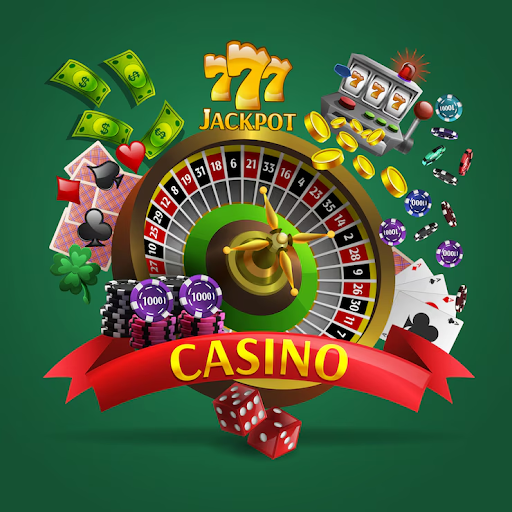How Developers Use Unity to Create Real-Money Casino Games That Run Smoothly

Have you ever played a real money casino game online and noticed how fast it loads, how smooth it feels, and how crisp the graphics look?
That’s not just luck. It’s the result of careful development—and often, it’s thanks to Unity. Developers around the world use Unity to build real money casino games that work well across devices, look polished, and keep the gameplay flowing.
Unity is one of the most trusted and widely used game engines available today. While it powers everything from casual mobile games to complex 3D adventures, it also plays a major role in the online casino industry.
Developers appreciate how Unity helps them build games quickly, test efficiently, and launch on multiple platforms, all while delivering a reliable, fast experience to players.
So, how exactly do developers use Unity to create real money casino games that run so smoothly? Let’s break it down.
Building a Game That’s Easy to Launch and Play
The first step in creating a real money casino game is building something players can access easily. This means developers want a game that can load fast and work on different devices like smartphones, tablets, and desktops. Unity helps them do this with its cross-platform development tools.
Instead of creating separate versions for every device, developers can create one game in Unity and export it to multiple platforms. This makes the development process faster and keeps the experience consistent for all players. Whether someone is spinning a slot on their Android phone or playing blackjack on their iPad, the game runs smoothly because it was built using the same base.
Designing Gameplay That Feels Fast and Responsive
Players expect Malaysia online casino games to respond the moment they tap or click. Whether it’s spinning the reels or placing a bet, everything should happen in real time. Unity is designed for this kind of instant interaction. Its real-time rendering engine makes sure animations, sounds, and user actions all work together without any lag.
Developers use Unity’s scripting tools to control how games behave. They can set up the reels to spin with perfect timing, animate card flips that look realistic, or trigger bonus features that light up the screen. All of this happens smoothly because Unity manages the speed and flow of every action inside the game.
Managing Game Assets for Speed
Smooth games depend on how assets like images, sounds, and animations are handled. If too much is loaded all at once, the game can slow down. Unity gives developers full control over how assets are used and when they are loaded.
Developers often use asset bundling in Unity. This means that parts of the game are grouped together and only loaded when needed. For example, the main game screen loads first, while bonus round graphics load later in the background. This keeps the initial load time short and makes the game feel faster overall.
Fine-Tuning Performance with Built-In Tools
Unity gives developers a full set of tools to test and optimize performance. These tools show how the game runs in real-time, including memory usage, frame rate, and how long each part of the game takes to process. Developers can use this data to make smart changes that improve speed and stability.
Some of the most used tools include:
- Unity Profiler: This helps developers track how the game uses memory and processing power.
- Frame Debugger: Lets them see how each part of the screen is drawn, which helps with visual performance.
- Device Simulator: Allows testing on different screen sizes and devices before launch.
Connecting to Real Money Systems
A big part of real money casino games is integrating secure payment systems. Players want to deposit, withdraw, and play without problems. Unity doesn’t process payments directly, but it gives developers the freedom to connect games to secure external systems easily.
Using Unity’s support for third-party plugins and APIs, developers can add payment processing, account management, and bonus reward systems. This allows players to enjoy all the features of a real money game—from loyalty rewards to fast payouts—while still experiencing smooth and safe gameplay.
Creating Engaging Visuals Without Slowing Down
Casino games aren’t just about the mechanics—they also need to look good. The graphics should feel exciting, especially during bonus rounds or jackpot wins. Unity helps developers create stunning visuals with dynamic lighting, shadows, particle effects, and 3D animations.
Developers can add animations that run smoothly even on devices with limited power. For example, a fireworks effect after a win can look sharp without affecting game speed. Unity’s visual tools are built to support this kind of balance between quality and performance.
Making Games That Work on All Devices
Real money casino players play from different places—at home on a desktop, while commuting on their phone, or even during a break at work. Developers use Unity to make sure their games work perfectly on every device.
Unity’s device adaptability ensures that games resize and adjust for different screen types. The controls, buttons, and animations all adapt smoothly to fit the screen without distortion. Whether it’s a wide tablet or a small mobile screen, the game still looks and plays the same.
Easy Updates and Continuous Improvements
Online casino games on https://www.v3377.net/my/en-us/ often need updates—new themes, special promotions, and added features. Unity makes it easy for developers to roll out changes without rebuilding the entire game. This means players can enjoy fresh content without long waits or complicated downloads.
Because Unity is developer-friendly, teams can release seasonal events, new animations, or bonus game modes quickly and efficiently. The smooth experience stays intact while new content keeps players interested and engaged.
Final Thoughts
Developers use Unity because it makes it easier to create real money casino games that look great, run smoothly, and work on every device. From fast-loading slots to detailed card tables and interactive bonus rounds, Unity helps build games that players can enjoy without delays or interruptions.